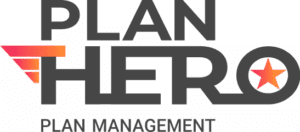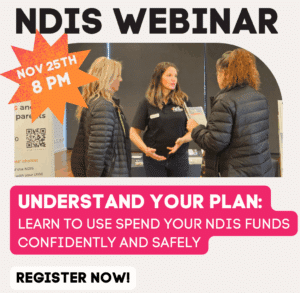How do I use my Core Supports funding?
Your CORE SUPPORTS funding is put in place to help you work towards your long-term goals, but more importantly to help you, or the person with a disability to increase their independence and make your everyday life more accessible.
This is the most flexible budget because you can use your funding across any of the 4 support categories that fall under this category.
What can I use my CORE funding for?
The NDIA uses the reasonable & necessary criteria to determine if a support should be funded, and what would be necessary for you/your child under this category. These supports look different for everyone, however it’s often that children under a certain age get limited funding in this area, as the NDIA may determine a large number of these ‘Core supports’ to be are a parental responsibility.
The are 5 categories in your CORE budget. These include:
Assistance with Daily Life (Category 1)
This includes funding for a support worker/nurse/carer to provide:
- assistance with daily personal activities (showering, personal hygiene and moving around the house)
- assistance with household tasks – such as cleaning and maintenance to help maintain your home environment
- assistance with preparation and delivery of meals – covers costs for a chosen service provider to prepare and deliver food on a weekly basis, taking your specific needs into account
- assistance in shared living arrangements / supported independent living (SIL) – incorporates assistance with and/or supervising daily life tasks in a shared living environment. This is typically a STATED line item
Transport (Category 2)
This is support that helps you travel to work or other places that will help you achieve the goals in your plan.
How you can spend your transport funding and how it is paid to you (whether upfront or in regular payments) will be different for each person. Your LAC will explain how you can use this budget
I.e. Taxi expenses if you are unable to access public transport or specialised transport to/from school, work, activities, community
Consumables (Category 3)
This includes items you may need like continence products or low-cost assistive technology (AT) and equipment to improve your independence and/or mobility.
These are items that you do not require an assessment or quote to purchase.
- Daily living solutions/daily adaptive equipment: e.g. medication management devices, non-slip bathmats, signature guide, long-handled or adapted grip equipment, cutlery,
- Mobility: e.g. replacement mobility cane; replacement covers (like for like); walking stick
- Hearing & communication devices: Auslan or Signed English Training
- Interpretation & translation services
- External continence: One off/short term supply of washable briefs, pads, bedding protectors
- Low-cost Assistive technology: low risk items under $1500
Assistance with Social & Community Participation (Category 4)
This includes support to help you to engage in social or recreational activities and become more involved in your community. These activities may be provided in a centre or in a comm unity setting to strengthen your ability to participate independently
The NDIS may fund a support worker to support YOU to:
- Join a social group
- Go on a holiday camp
- Visit your local library
- Attend a personal development course
- See a movie or concert
- Go to community events or join a sporting club
- Attend an art class
Note: The NDIS does not fund the actual COST of the activity
Home & Living (Category 16)
This is support that assists in appropriate home & living options specific for your disability needs and can only be used flexibly WITHIN this category.
- Short term accomodation (STA) – respite away from your carers (max 14 days)
- Medium term accomodation (MTA) – up to 28 days while looking for housing
- Supported Independent Living (SIL) – paid personal support to help you live independently in your home or shared accomodation
- Individualised Living Options (ILO) – package of supports that can help you live how you want in the home environment you have chosen
Young people in residential aged care (Category 21)
This is funding for a younger person living with a permanent disability (aged under 65 years) who lives in a residential aged care facility. It cannot be used flexibly across other CORE budgets, is agency-managed and is cross-billed
- Support workers to assist you in the aged care facility
- Supports to explore moving to other accomodation or to get ready to move out of residential aged care facilities
- Other care and accomodation costs that the NDIS have agreed to – this will be reimbursed to you if included in your plan funding
What if I do not have funding for this support?
If your plan has not included funding for these supports, and you feel this is reasonable & necessary for your disability needs, you will need to get in touch with your NDIA planner or LAC directly, or call NDIA on 1800 800 110 to discuss a plan review or your options for funding.

